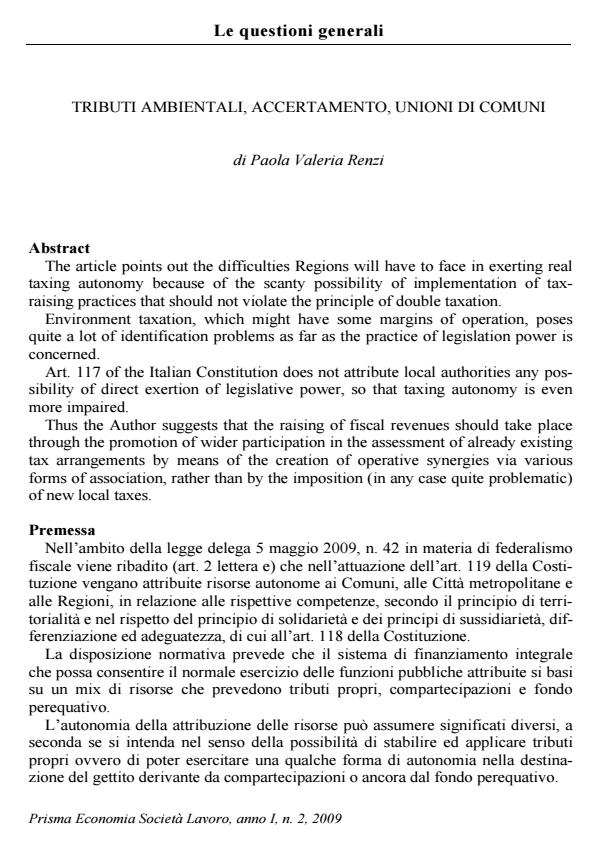Tributi ambientali, accertamento, Unioni di Comuni
Titolo Rivista PRISMA Economia - Società - Lavoro
Autori/Curatori Paola Valeria Renzi
Anno di pubblicazione 2009 Fascicolo 2009/2
Lingua Italiano Numero pagine 15 P. 46-60 Dimensione file 84 KB
DOI 10.3280/PRI2009-002005
Il DOI è il codice a barre della proprietà intellettuale: per saperne di più
clicca qui
Qui sotto puoi vedere in anteprima la prima pagina di questo articolo.
Se questo articolo ti interessa, lo puoi acquistare (e scaricare in formato pdf) seguendo le facili indicazioni per acquistare il download credit. Acquista Download Credits per scaricare questo Articolo in formato PDF

FrancoAngeli è membro della Publishers International Linking Association, Inc (PILA)associazione indipendente e non profit per facilitare (attraverso i servizi tecnologici implementati da CrossRef.org) l’accesso degli studiosi ai contenuti digitali nelle pubblicazioni professionali e scientifiche
Tributi ambientali, accertamento, Unioni di Comuni - The article points out the difficulties Regions will have to face in exerting real taxing autonomy because of the scanty possibility of implementation of taxraising practices that should not violate the principle of double taxation. Environment taxation, which might have some margins of operation, poses quite a lot of identification problems as far as the practice of legislation power is concerned. Art. 117 of the Italian Constitution does not attribute local authorities any possibility of direct exertion of legislative power, so that taxing autonomy is even more impaired. Thus the Author suggests that the raising of fiscal revenues should take place through the promotion of wider participation in the assessment of already existing tax arrangements by means of the creation of operative synergies via various forms of association, rather than by the imposition (in any case quite problematic) of new local taxes.
Paola Valeria Renzi, Tributi ambientali, accertamento, Unioni di Comuni in "PRISMA Economia - Società - Lavoro" 2/2009, pp 46-60, DOI: 10.3280/PRI2009-002005